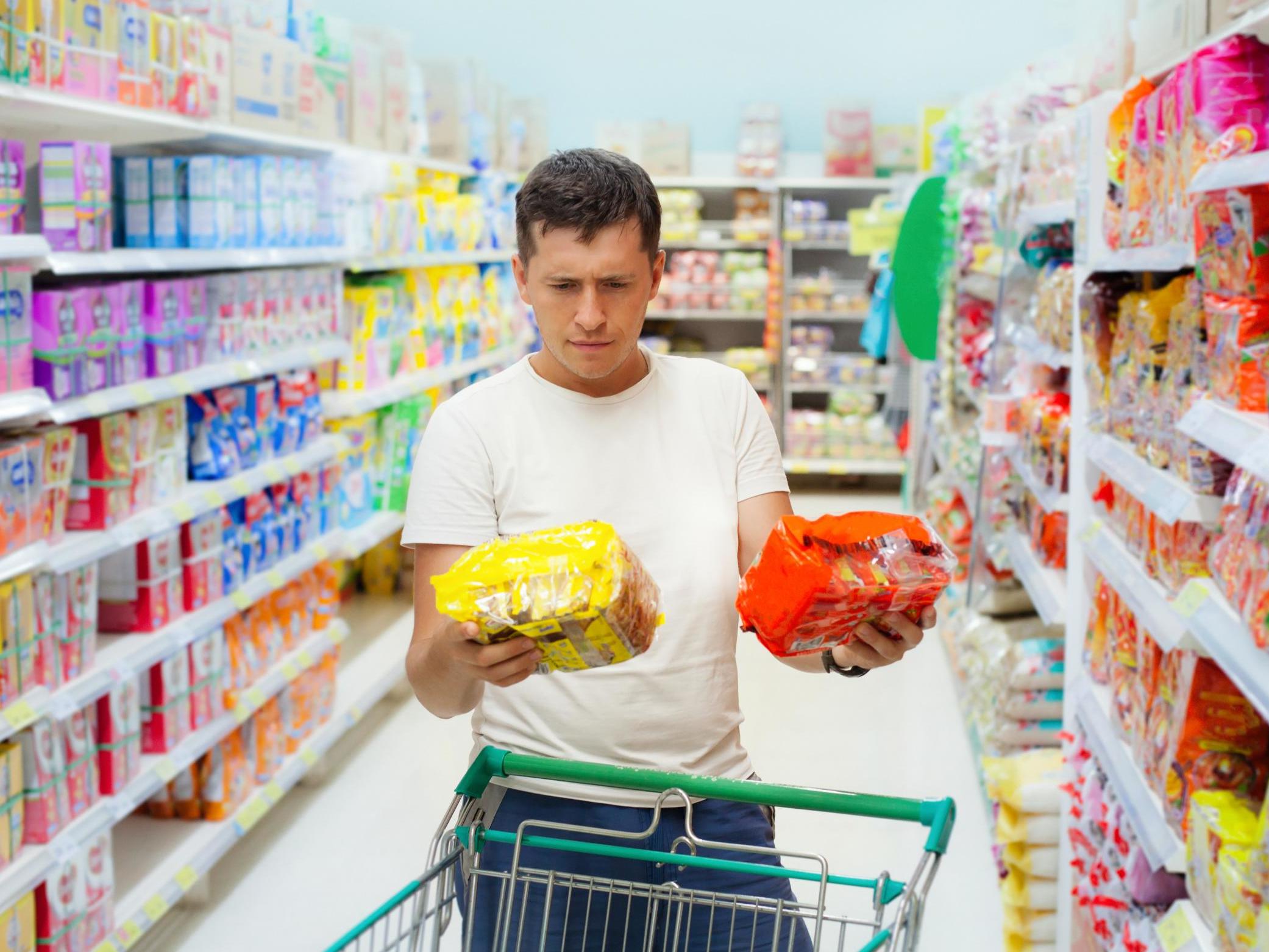Supermarkets flooding Britain with 59 billion pieces of plastic packaging a year, major study reveals
‘Plastic pollution is now a full-blown environmental crisis and supermarkets are right at the heart of it’

Britain's top 10 supermarkets are flooding the planet with 810,000 tonnes of single-use plastic every year, according to a major new report.
This is in addition to over 1.1 billion single-use bags, 958 million “bags for life” and 1.2 billion plastic bags for fruit and vegetables, which supermarkets produce annually.
Seven of those supermarkets are putting into circulation around 59 billion pieces of plastic packaging a year – roughly 2,000 pieces for every household in the country – according to the Checking Out on Plastics report by the Environmental Investigation Agency and Greenpeace UK.
Half of supermarkets surveyed have no specific targets to reduce plastic packaging while most of those which do are removing it at such a slow pace (just 5 per cent per year) it would take them 20 years to completely rid their shelves of throwaway plastic, the study states.
It adds that that they have only committed to eliminate non-recyclable plastics by 2025, something the authors describe as an “unacceptable delay”.
Shops have not put pressure on big brands and producers to reduce levels of plastic, it says.
“Plastic pollution is now a full-blown environmental crisis and our supermarkets are right at the heart of it,” said Greenpeace UK Oceans Campaigner Elena Polisano. “Much of the throwaway plastic packaging filling up our homes comes from supermarket shelves, but high-street giants are still not taking full responsibility for it.
“So far most retail bosses have responded to growing concern from customers with a pick-and-mix of different plastic announcements, but have failed to come up with the coherent plastic reduction plans required to solve this problem.”
She added: “The success of the plastic bag charge shows big retailers can crack down on plastic waste if they really mean to. Every little may well help, but if we are to protect our natural world and ourselves from pervasive plastic pollution, supermarkets need to check out on throwaway plastic fast.”
Plastic production has soared twentyfold in the past half-century and, at the current rate, is expected to quadruple by 2050, the report says.

In the 60 years since large-scale production of plastics began, 79 per cent of plastic waste globally has been disposed of in landfills or the natural environment, 12 per cent has been incinerated and 9 per cent recycled.
Even in the UK, recycling rates of consumer plastic packaging only reach 30-34 per cent, according to the Waste and Resources Action Programme (Wrap).
The grocery retail sector is the largest user of plastic packaging, accounting for over half of the 1.5 million tonnes of consumer plastic packaging used in retail every year.
Responding to Greenpeace’s findings, Peter Andrews, head of sustainability at the British Retail Consortium said: “Retailers recognise how important it is to tackle plastic pollution, removing it where possible and ensuring all packaging is recyclable. Billions of tonnes of waste has been prevented so far and the industry is working towards the goal of 100 per cent of plastic packaging being reusable, recyclable or compostable by 2025 at the latest and eliminating all unnecessary single use packaging.
“We know customers need to trust that if packaging is put in a recycling bin, it will be recycled by local authorities. But we are concerned that the pace of change is being hampered by a lack of recycling infrastructure.”
Join our commenting forum
Join thought-provoking conversations, follow other Independent readers and see their replies
Comments
Bookmark popover
Removed from bookmarks